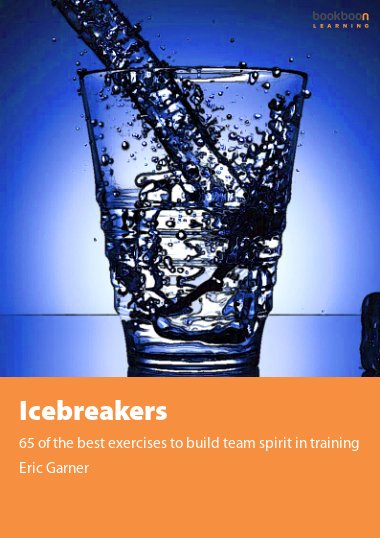Icebreakers are one of the most important sets of resources for trainers. Originally, an icebreaker was used at the start of a training course to “break the ice” between people who were out of their normal workplace environment and perhaps feeling nervous and apprehensive. They were also a useful way of getting people to speak up, join in, and have a bit of fun. From their “ice-breaking” role, icebreakers were further used at any points in a course to inject a change of pace, lighten the atmosphere, bring people together, or as a way of bringing home a learning point. Hence, today, it is quite normal to have icebreakers at the start of a course, the middle of a course (eg after a break), and at the end of a course to round things off.
The 65 icebreakers in this book are some of the best that we, at ManageTrainLearn, have used over many years of management and personal effectiveness training. They are based on 3 criteria. First, they are short and easy to use. Second, they cover all learning styles, from the linguistic to visual, from interpersonal to intrapersonal, from physical to mathematical. Thirdly, they work. They do what they say they do. That’s why we have included detailed steps so that you can also get them to work and alternative suggestions so that you can develop them to fit your situation. Icebreakers should be fun for both you as trainer and for your trainees. They are a key ingredient in helping you deliver successful and memorable learning programmes.

